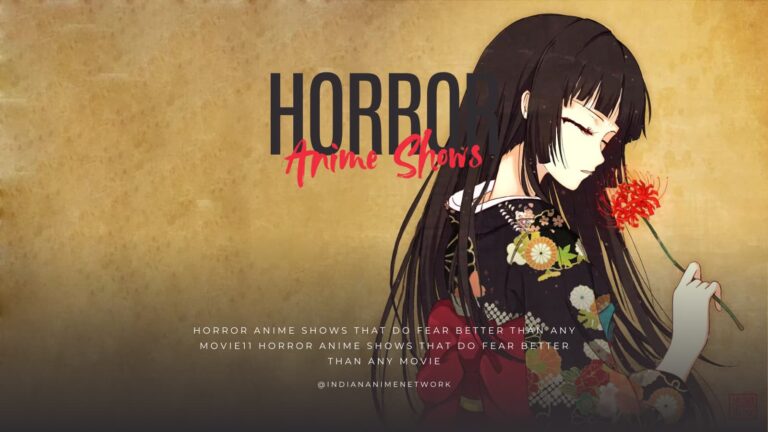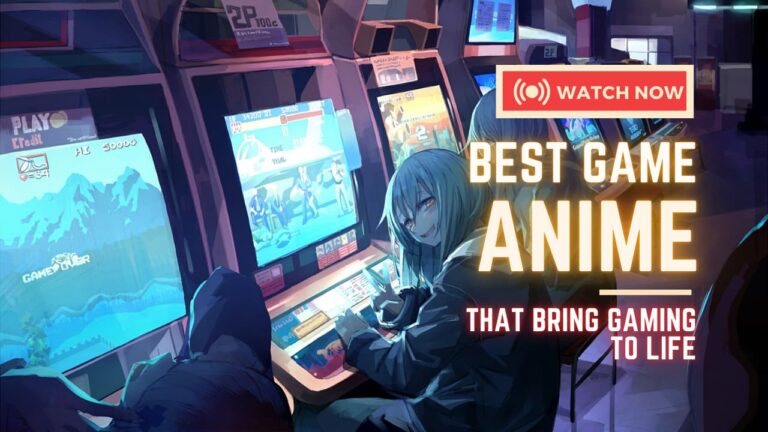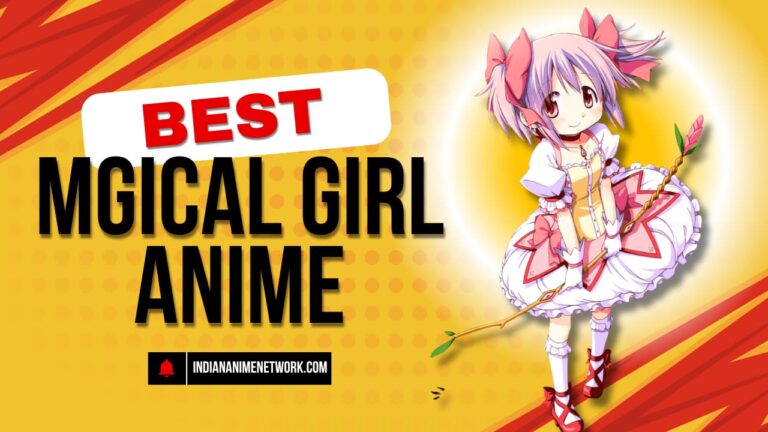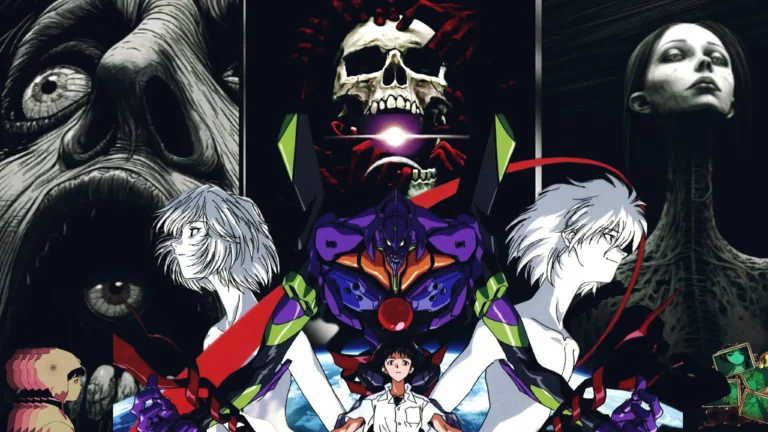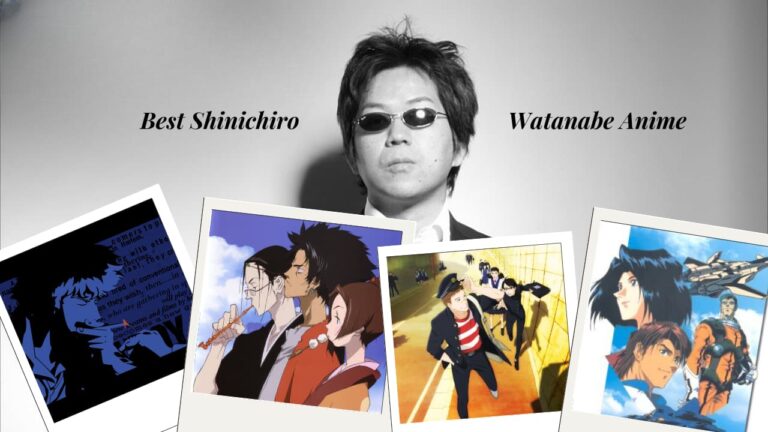13+ Best Josei Anime Picks for Relatable, Mature Storytelling
Josei(The term “josei” technically translates to “woman”) anime is a genre targeted primarily toward adult women, typically aged 18 to 40.
It often explores more mature and realistic themes related to relationships, work, and personal development compared to its counterpart genres like shoujo (targeted at younger girls) or shounen (targeted at younger boys).
The narratives tend to focus on deeper emotional and psychological explorations, with an emphasis on nuanced character interactions and everyday life experiences.
Josei anime often features strong female protagonists who face challenges and overcome obstacles. The relationships between characters are often explored in depth, and the stories can be quite emotional.
While there may be romantic elements, josei anime is not always focused solely on the sad or healing romance counterpart.
Unlike the idealized or fantastical romance often seen in shoujo anime, josei typically portrays relationships in a more grounded and mature way.
The love stories can be more complex, featuring themes of heartbreak, divorce, unrequited love, or the challenges of maintaining long-term relationships.
The genre places a significant focus on character development, showcasing the growth, struggles, and successes of the protagonists.
Female leads are often portrayed as independent, career-driven, or grappling with personal dilemmas in their adult lives.
The emotions in Josei anime are often understated, relying on subtle interactions and moments of introspection to convey the characters’ feelings and inner struggles.
This resonates with an audience that appreciates mature, sophisticated storytelling.
Josei anime is more willing to tackle heavier themes like mental health, infidelity, societal pressures, or personal failure. It reflects the realities of adulthood, often devoid of the idealized fantasies seen in younger-skewed genres.
Without further ado, let’s go: essential Josei anime: stories for the mature and relatable viewer.
13. Petshop of Horrors(1999):
Petshop of Horrors presents a unique mix of horror, mystery, and psychological depth, encapsulating many traits true to the josei genre. The adult themes in this anime revolve around desire, regret, and human frailty.
Set in a mysterious pet shop run by the enigmatic Count D, the narrative exposes its characters’ darkest wishes, often revealing how their inner desires lead to inevitable tragedy.
This psychological maturity, with its focus on human emotion and morality, connects strongly with an adult female audience, who may appreciate the contemplative and introspective tone.
The animation, though somewhat dated by modern standards, is stylized in a way that evokes an otherworldly, gothic atmosphere.
Its muted colors and shadowy environments emphasize the mystery and moral ambiguity of the pet shop, drawing attention to the eerie beauty of each episode.
The character designs are expressive but restrained, reflecting the tension beneath the surface of each encounter.
One of the most compelling aspects is how the show subtly weaves emotional and moral consequences into each episode.
Count D, the series’s cryptic and almost otherworldly figure, plays the role of a facilitator rather than a direct instigator, highlighting the fragile balance between human greed and the responsibility of choice.
“Those who seek more than what is given,” Count D notes, “will find the price of excess weighs more heavily than any treasure.”
The true strength of Petshop of Horrors lies in its ability to evoke a mature audience’s understanding of flawed humanity.
The gothic horror, combined with the intense moral exploration, makes it a rich experience for those seeking thought-provoking, emotional depth—particularly women who enjoy layered, psychological narratives.
The series leaves you contemplating the intricacies of desire and consequences long after its haunting stories conclude.
12. Paradise Kiss (2005):
Paradise Kiss (2005) stands as a quintessential Josei anime, embracing the mature complexities of self-discovery, relationships, and ambition.
The story centers around Yukari, a high school student who is drawn into the world of fashion after meeting an eccentric group of designers.
The adult theme emerges through its portrayal of choices, independence, and the pursuit of identity. Unlike youthful fantasies of love, Paradise Kiss highlights the impermanence of relationships, exploring emotional and physical intimacy with a realistic lens.
The characters grapple with personal and professional aspirations that often conflict with societal expectations, making the narrative deeply resonant for women.
A key moment in Yukari’s journey is when George, the enigmatic designer, tells her, “You have to find out what you really want, or you’ll end up trapped in someone else’s dream.”
This pivotal conversation strikes at the core of the Josei experience, confronting the often messy reality of adulthood—where dreams, romance, and responsibility collide.
The animation, designed by the same team behind Nana, mirrors the elegance of the fashion world with sharp, stylized character designs and vibrant use of color.
The art direction accentuates the glamorous yet transient nature of Yukari’s new life, underscoring the tension between surface beauty and deeper emotional struggles.
The fluidity of movement captures the high-stakes world of runway shows while maintaining an artistic balance that brings emotional nuances to life.
Paradise Kiss is more enjoyable to women precisely because it doesn’t shy away from imperfection.
It reflects the intricacies of evolving relationships and personal growth in ways that echo real life, making the viewer reflect on their own choices and the unpredictable, often bittersweet nature of adulthood.
11. Honey & Clover(2005):
Honey & Clover (2005) weaves a delicate tapestry of adulthood, love, and self-discovery that transcends the boundaries of traditional josei anime.
Set within the lives of five art students, it delves into the confusion and heartache that come with finding one’s place in the world.
The adult themes of emotional vulnerability, unrequited love, and the uncertainty of career paths form the narrative’s backbone, offering a mirror to those navigating their own turbulent transitions into adulthood.
The animation enhances the storytelling, with its soft, watercolor-like palette that subtly captures the bittersweet tone of the series.
Though not heavily stylized, the character expressions and gentle movements evoke a deep emotional resonance, focusing on the subtleties of human interaction rather than dramatic action.
This understated visual approach aligns with the realistic and contemplative themes true to Josei, focusing on the emotional landscape over spectacle.
One of the most striking characters, Takemoto, embarks on a physical and emotional journey of self-acceptance, representing the quintessential search for meaning.
His uncertainty is captured when he reflects, “I just keep moving forward because that’s all I can do… even though I don’t know where I’m going.”
The struggles of defining oneself are deeply relatable, particularly to women, who often face societal pressures in both personal and professional spheres.
Hagumi, another pivotal character, personifies fragility and the weight of expectations, her delicate exterior hiding a fierce inner battle.
As Honey & Clover unfolds, it reveals that growing up isn’t about having answers but learning to embrace the questions.
Its quiet moments resonate, leaving the viewer contemplating love, loss, and the elusive nature of happiness, elevating it beyond mere entertainment into an emotional experience reflective of the adult human condition.
10. Princess Jellyfish(2010):
Princess Jellyfish is a delightful blend of quirky humor and sincere emotional depth, making it a standout in the josei genre.
The anime follows Tsukimi Kurashita, an introverted young woman with a deep passion for jellyfish, who lives in a communal house with other similarly reclusive women.
Their world is upended when they encounter Kuranosuke Koibuchi, a cross-dressing man who challenges societal expectations and pushes Tsukimi to step out of her comfort zone.
The adult themes in Princess Jellyfish explore the anxiety and self-doubt that women often face regarding their appearance, social status, and place in society.
Kuranosuke’s character embodies a critique of gender norms, showing how societal roles can be fluid and liberating.
The show’s depiction of the female residents’ insecurities about beauty and the pressure to conform resonates deeply with a mature audience, especially women who relate to these struggles in everyday life.
The animation itself is delicate yet lively, with unique character designs that emphasize their idiosyncrasies. Tsukimi’s wide-eyed wonder contrasts with Kuranosuke’s fashion-forward flair, creating a visual dichotomy that reflects their worlds colliding.
Despite its simplicity, the animation exudes warmth, perfectly mirroring the gentle nature of the story.
In its gentle unraveling, Princess Jellyfish celebrates self-acceptance, showing that beauty and strength lie in the unexpected.
For women, this josei gem offers a narrative that doesn’t just entertain but reassures, whispering that the courage to love and be loved is worth the risk.
9. Maid Sama!(2010):
Maid Sama! intertwines romance and comedy with strong josei elements, appealing primarily to women through its portrayal of a fiercely independent protagonist, Misaki Ayuzawa.
As the first female student council president at a school transitioning from an all-boys institution, Misaki hides her part-time job at a maid café, creating tension when Takumi Usui, the popular and enigmatic student, discovers her secret.
The anime touches on adult themes of gender roles and societal expectations. Misaki embodies the pressure women face to excel in male-dominated spaces, while simultaneously managing traditionally feminine duties.
Her struggles are symbolic of real-life challenges women confront in balancing independence with societal perceptions, particularly in navigating romantic dynamics.
The animation quality complements the narrative with expressive character designs that emphasize emotional depth, particularly in the facial expressions of Misaki and Usui.
Their interactions are marked by subtlety, with nuanced moments of vulnerability hidden beneath the comedic surface.
Fluid transitions and detailed backdrops add to the charm, though the art style is somewhat conventional compared to more visually experimental Josei titles.
A significant quote from the series highlights Misaki’s internal conflict: “I can’t be weak, not here, not in front of them. If I show them weakness, they’ll never take me seriously.”
This moment reveals her fierce resolve to maintain control in a world that often undermines her efforts due to her gender, a reflection of the themes that resonate with many women—particularly those grappling with similar societal pressures.
The anime’s appeal lies not just in romance but in its exploration of identity and strength. In the quiet spaces between its vibrant scenes, Princess Maid Sama! offers a delicate portrait of a woman fighting to define herself in a world that constantly questions her worth.
8. Usagi Drop (2011):
Usagi Drop (2011) presents a tender, deeply emotional narrative centered on Daikichi, a thirty-year-old man who unexpectedly becomes the guardian of Rin, his grandfather’s illegitimate six-year-old daughter.
The anime navigates themes of parenthood, responsibility, and the complexities of adult life, making it a true josei piece.
The adult theme of Usagi Drop is quietly profound. Daikichi’s transition from a carefree bachelor to a sudden father figure highlights the sacrifice and emotional labor that accompany such responsibility.
His struggles mirror the realities of single parenthood, where balancing work, social life, and child-rearing becomes a delicate juggling act.
The anime explores this mature subject with grace, offering insights into what it means to give oneself fully to another person.
Visually, the animation is soft and delicate, with a watercolor-like aesthetic that perfectly complements the gentle, slice-of-life tone.
The subtlety of the character designs and the use of muted colors create an atmosphere of warmth and intimacy. Every frame feels like a carefully painted scene, resonating with the emotional depth of the story.
Rin and Daikichi’s relationship is at the heart of the narrative. Their bond develops with patience, honesty, and mutual trust, making their interactions both tender and meaningful.
As Daikichi reflects, “Rin didn’t ask to be born, but now that she’s here, I can’t imagine life without her,” the gravity of his commitment becomes apparent.
Usagi Drop is more enjoyable for women, particularly due to its nuanced portrayal of adult challenges, where emotional intelligence and care take precedence over dramatic romance.
The anime explores love in its purest, most selfless form, leaving behind an imprint of quiet beauty that lingers beyond its final scenes, much like life itself.
7. Chihayafuru (2011):
Chihayafuru (2011), though primarily categorized as a shoujo sports anime, offers a compelling case as a josei narrative, where its depth transcends age groups, especially in its exploration of emotional complexity.
At the heart of the story is Chihaya Ayase, who embarks on a journey to become the best in the traditional card game Karuta.
What sets this anime apart is how it quietly but powerfully weaves in adult themes of identity, ambition, and the often bittersweet nature of personal sacrifice.
One of the most poignant adult themes is the exploration of self-worth and belonging. The central trio, Chihaya, Taichi Mashima, and Arata Wataya, each grapple with their individual desires and the constant tension between friendship and rivalry.
Taichi’s emotional turmoil is particularly significant. “You’ll never win if you always wait for things to happen,” he tells himself, his struggles reflecting the fears of inadequacy and unreciprocated love many face as adults.
The animation quality complements the narrative’s emotional depth. Madhouse’s lush visuals give life to the high-speed intensity of Karuta, with fluid motions during matches that contrast beautifully with quiet, introspective moments.
The vibrant color palette intensifies these contrasts, making both the exhilaration of competition and the quiet ache of personal reflection visually striking.
In its soul, Chihayafuru captures a very adult contemplation of passion versus practicality. The characters’ pursuit of Karuta reflects a deeper struggle to hold onto childhood dreams in the face of societal expectations.
The game becomes a metaphor for the delicate balance between striving and letting go—a dance of cards, but also of life’s choices, fraught with quiet victories and unseen losses.
6. Polar Bear Café(2012)
“Polar Bear Café” (2012) is an unexpectedly delightful entry into the josei genre, blending humor and subtle adult themes with the charm of anthropomorphic animals.
Set against the backdrop of a quaint café run by a laid-back polar bear, the series focuses on daily interactions that are deceptively simple but layered with reflections on adulthood, responsibilities, and the small joys of life.
What sets it apart as a josei work is its portrayal of the mundane struggles and pleasures of adult life—routines, work dilemmas, and social nuances—wrapped in the guise of casual conversations between the café’s eclectic patrons.
The animation itself is clean, with a soft palette that complements the series’ relaxed tone. Every frame exudes a sense of calm, perfectly reflecting the café’s cozy ambiance.
The designs of the main characters—Polar Bear, Penguin, and Panda—are simple yet expressive, making their personalities shine through.
As Penguin remarks at one point, “It’s not about the grandeur of the place, but how the moments here fill the gaps in our lives.”
This seemingly lighthearted quote captures the series’ essence: it’s a haven for characters to find solace and connect, much like adults navigating the complexities of companionship.
The unique cast adds to the charm. Polar Bear’s easygoing nature contrasts sharply with Penguin’s subtle melancholy, while Panda’s carefree attitude often highlights themes of balancing work and relaxation.
Their conversations are laced with dry humor that resonates deeply because it mirrors the understated way adults express dissatisfaction or contentment.
The allure of “Polar Bear Café” lies in its quiet, observational style—transforming the mundane into something quietly profound.
Beneath its whimsicality, it suggests that the true warmth of life comes from shared moments, even if they’re spent in a café with a polar bear as the barista.
5. Showa Genroku Rakugo Shinju(2016):
“Showa Genroku Rakugo Shinju” is a masterpiece that delves into the intricacies of life, love, and loss, capturing the essence of the josei genre with a depth rarely seen in anime.
Set against the backdrop of the dying art of rakugo—a traditional Japanese form of storytelling—the series explores adult themes of ambition, betrayal, and the haunting nature of unfulfilled desires.
Its narrative revolves around Yakumo Yurakutei, a revered yet conflicted storyteller, and his tragic relationship with the free-spirited Sukeroku, his once closest friend and rival.
The series elegantly balances passion for one’s craft with the destructive nature of jealousy and regret, transforming it into a melancholic symphony of human emotion.
The animation is remarkably fitting for the story’s atmosphere, with its muted color palette and meticulous attention to period detail.
The characters’ expressions, often subtle yet profoundly evocative, breathe life into the intimate, slow-burning dialogues.
Scenes of performances are masterfully animated, using dynamic framing and lighting to accentuate the ebb and flow of each tale.
As Yakumo reflects, “Rakugo isn’t just about the words; it’s about living a thousand lives in a single performance.” This nuanced portrayal of art and its burdens elevates the animation beyond mere aesthetics.
True to its genre, “Showa Genroku Rakugo Shinju” is unafraid to explore complex relationships that defy traditional boundaries, focusing on flawed adults struggling with their choices.
Rather than romanticizing the past, the series lays bare the weight of history and the inevitability of change. Ultimately, it isn’t just about preserving rakugo; it’s a testament to the fleeting nature of life and the art that outlives us.
By weaving together personal pain and artistic legacy, the series echoes the very nature of rakugo itself: a beautiful yet ephemeral dance between words and silence.
4. Miss Kobayashi’s Dragon Maid(2017):
“Miss Kobayashi’s Dragon Maid” blends the supernatural with the mundane, offering a nuanced exploration of adult themes like loneliness, identity, and the complexity of unconventional family dynamics.
At the core is Miss Kobayashi, an overworked office worker whose life takes a whimsical turn when she ends up living with Tohru, a powerful dragon who transforms into a maid.
The series uses Tohru’s presence to examine Miss Kobayashi’s sense of isolation and the slow, delicate process of building emotional intimacy. Despite the fantastical premise, it remains grounded in very human experiences—one of its greatest strengths as a josei work.
The adult themes are subtly woven into the comedic and slice-of-life moments. “Even a dragon can feel the ache of loneliness in an unfamiliar world,” Tohru reflects, hinting at the yearning to belong.
Tohru’s love for Kobayashi, while often comedic, touches on deeper emotions like the struggle to reconcile her destructive nature with the desire to be accepted.
These elements echo the series’ portrayal of relationships not bound by societal expectations.
Visually, the animation by Kyoto Animation is fluid and expressive, masterfully balancing dynamic action sequences with softer, slice-of-life artistry.
The contrast between the vibrant, exaggerated designs of the dragons and the muted palettes of Kobayashi’s daily life accentuates the clash between their two worlds.
Small details, like the gentle sway of Tohru’s tail or Kobayashi’s understated expressions, elevate the emotional nuance of each scene.
Ultimately, “Miss Kobayashi’s Dragon Maid” shines through its emphasis on redefining family, not by blood or conventional roles, but by the bonds of care and acceptance.
Tohru’s fantastical powers may impress, but it’s the quiet moments, like Kobayashi’s gradual openness, that linger long after the episode ends—reminding us that even in a world of dragons, true strength lies in finding connection. Also, check out our carefully curated quotes from Miss Kobayashi’s Dragon Maid.
3. Wotakoi: Love Is Hard for Otaku(2018 ):
“Wotakoi: Love Is Hard for Otaku” delicately balances the reality of adult relationships with a touch of playful humor, making it a unique gem in the josei genre.
The anime revolves around the complex lives of office workers whose love for games, manga, and anime permeates their adult routines.
The central theme explores the intersection of passion and professionalism—how do adults juggle romantic relationships when their deepest interests are often seen as frivolous?
The adult themes are grounded in the realistic portrayal of relationships. Narumi, a fujoshi hiding her hobby, and Hirotaka, her straightforward gamer boyfriend, struggle not with external obstacles, but with internal conflicts of compatibility and acceptance.
“Being with someone doesn’t mean you have to change who you are, but it means learning how to stay true to yourself in front of them,” Hirotaka reflects, capturing the essence of what the anime conveys about adult relationships.
The animation quality is nuanced, avoiding exaggerated designs for a cleaner, more mature style befitting its josei roots. Subtle expressions and realistic settings lend authenticity to the characters’ interactions.
The use of soft colors contrasts with the vibrant hues reserved for their otaku imaginations, beautifully capturing the duality of their worlds.
This juxtaposition not only accentuates the mundane reality of their workplace but also celebrates the vibrant escapism of their hobbies.
Ultimately, “Wotakoi” thrives by highlighting that love isn’t about dramatic declarations but shared understandings.
The mundane moments—commuting together, late-night gaming, or simply knowing what makes the other smile—are what deepen their bond.
In this way, “Wotakoi” elegantly navigates the nuances of adult love, reminding viewers that true intimacy is built not on grand gestures, but on the quiet acceptance of quirks and flaws.
2. Kaguya-sama: Love Is War(2019):
Among all of Akasaka Aka’s manga, “Kaguya-sama: Love Is War” may seem deceptively lighthearted, but beneath its comedic façade lies a nuanced exploration of power dynamics and emotional vulnerability—a hallmark of the josei genre.
Set in the elite Shuchiin Academy, the series revolves around the intense psychological battle between Kaguya Shinomiya and Miyuki Shirogane, both too proud to confess their love.
While this premise appears playful, the adult themes emerge through the subtle, sophisticated portrayal of relationships—each character’s struggle with pride, self-doubt, and unspoken desires echoing the complexities of real-life romance.
The animation, crafted by A-1 Pictures, elevates the narrative with its bold visual style and dynamic direction. The studio employs exaggerated visual metaphors and inventive framing, emphasizing the characters’ internal conflicts.
For instance, the signature “mental warfare” scenes, where intricate patterns and quick cuts depict Kaguya and Miyuki’s convoluted thoughts, are not just comedic devices but reflections of their emotional turmoil.
As Kaguya notes, “In this war of love, neither victory nor defeat is simple. Sometimes, winning means breaking your own heart.”
The vibrant use of colors and seamless transitions between moods—from tense confrontations to unexpectedly tender moments—makes the animation a visual testament to the character’s emotional journey.
What sets Kaguya-sama apart is its blend of wit, depth, and visual creativity, making it a standout within its genre. The adult themes, hidden beneath layers of humor, resonate in the smallest gestures: a glance, a hesitation, a word unsaid.
Ultimately, the series reveals that love isn’t just a battlefield of pride, but also a delicate dance of vulnerability. In a genre known for its realism, “Kaguya-sama” strikes a perfect balance, demonstrating that even the most cerebral of games is ruled by the heart. Here are the best quotes from Kaguya Sama: Love Is War!
1. To Your Eternity (2021):
“To Your Eternity” is an evocative exploration of humanity’s fragility and resilience, captured through the eyes of an immortal being called Fushi. As a Josei anime, it delves into mature themes of loss, identity, and the relentless passage of time.
The narrative’s focus isn’t on action or romance but on the profound emotional consequences of forging connections in a transient world.
The adult themes are woven through the very essence of Fushi’s existence: each life he encounters, from the lonely boy in the tundra to March’s innocence and Gugu’s unyielding loyalty, leaves an indelible mark.
The series poignantly illustrates that “to live is to endure pain,” as Fushi’s growth stems not from gaining powers, but from understanding what it means to live, love, and inevitably lose.
The animation, produced by Brain’s Base, is mesmerizing, employing a soft yet vivid palette that enhances the ethereal quality of its world.
Fluid motion and meticulously detailed backgrounds reflect the beauty and brutality of each setting, whether it’s the harsh winters or the warmth of fleeting companionship.
Characters’ expressions are rendered with stunning precision, bringing Fushi’s silent turmoil and eventual sorrow into sharp focus.
“Every scar, every bruise… they are proof that I’ve lived,” Fushi reflects, the visuals lending weight to his words as viewers witness his transformation—each form he takes embodying a story of its own.
The series’ pacing, interspersed with moments of aching stillness, serves to deepen its meditative tone. Rather than offering escapism, it presents life as it is—unpredictable and often unforgiving.
Yet, in these trials, it finds meaning and hope. “To Your Eternity” resonates because it is unafraid to embrace pain as a form of growth, illustrating that true immortality lies not in an unending life, but in the memories we carry forward. For fans of the series, here are the most fascinating trivia facts from To Your Eternity, you might find interesting!


